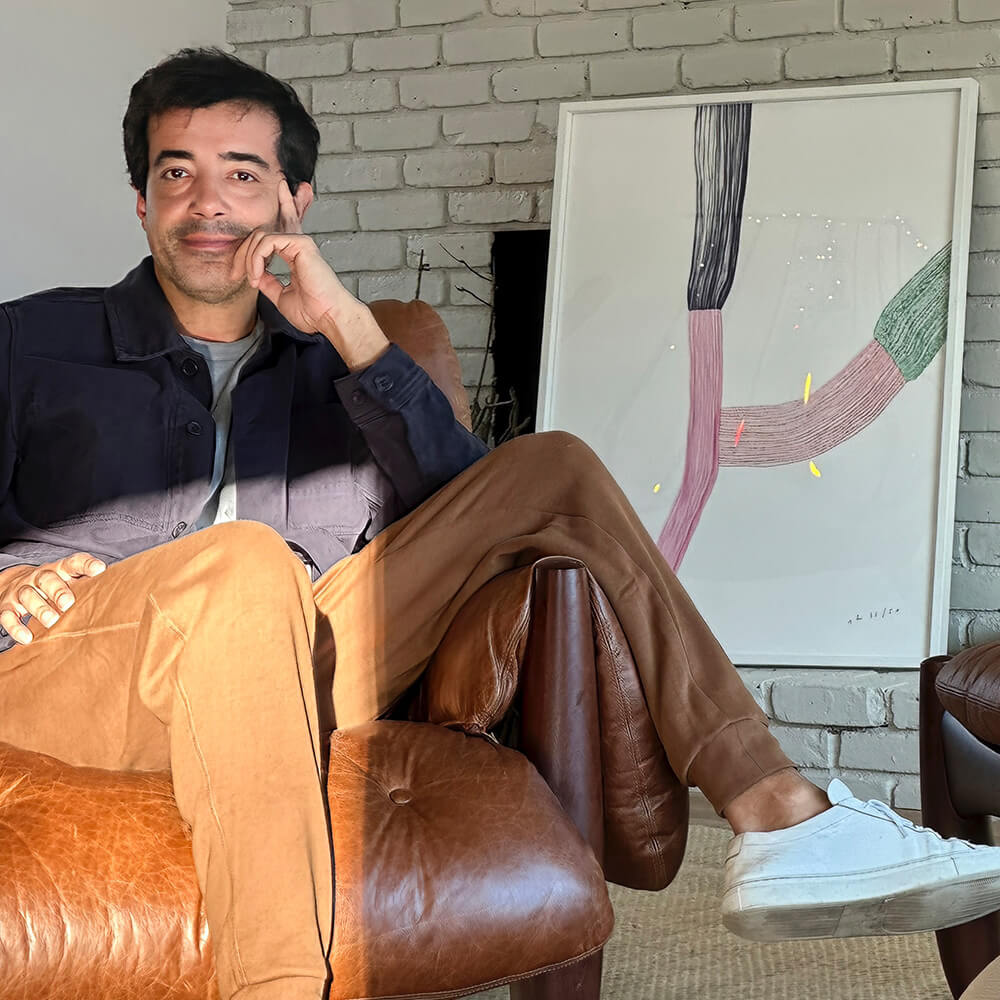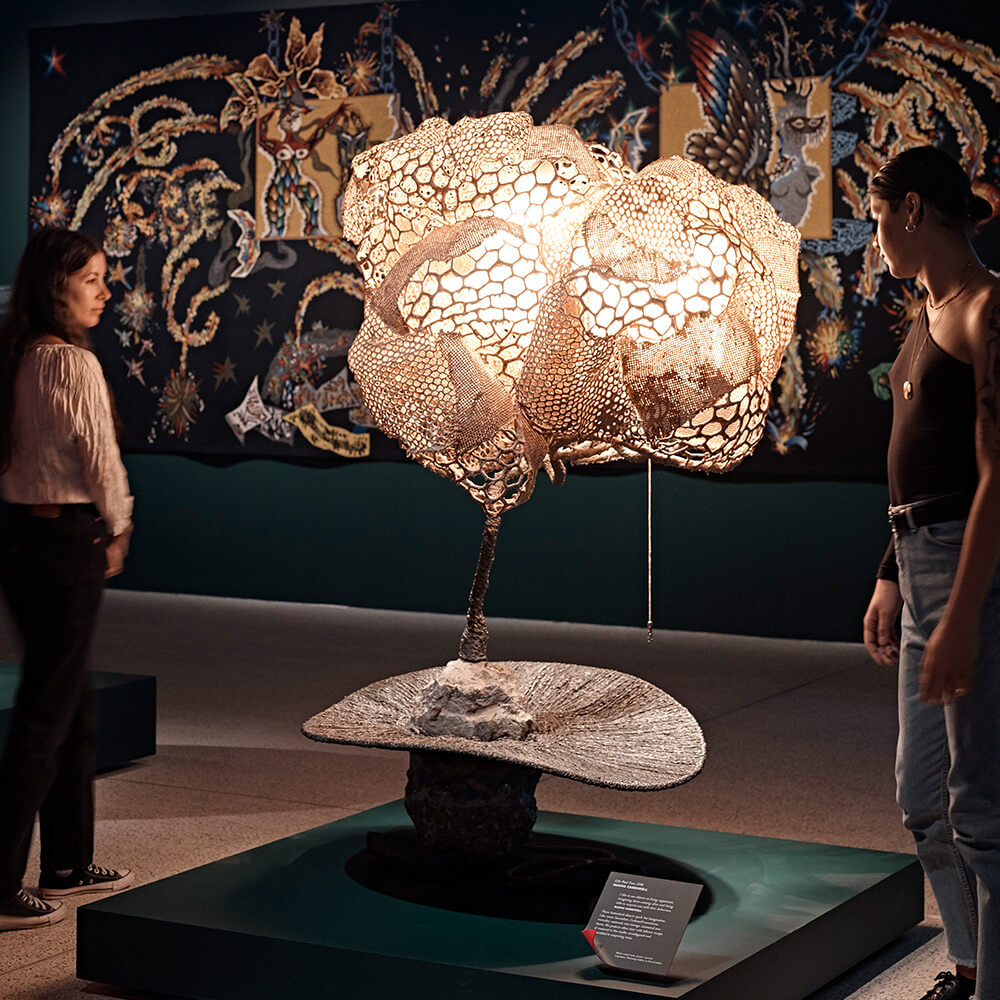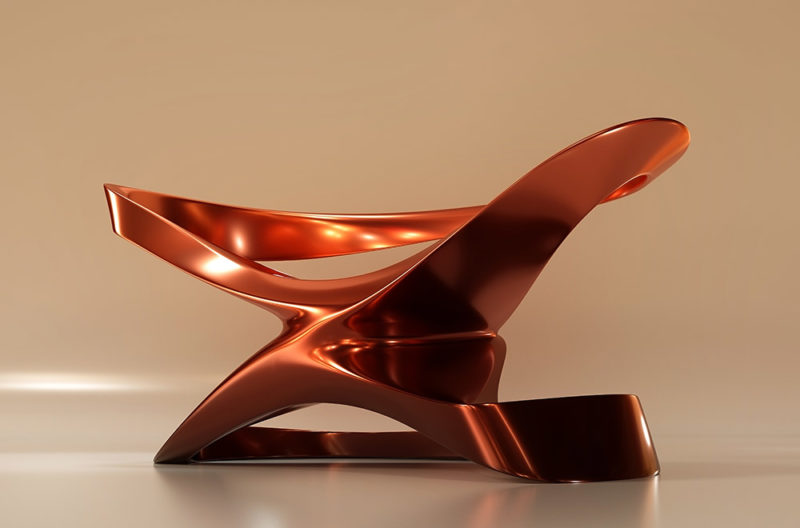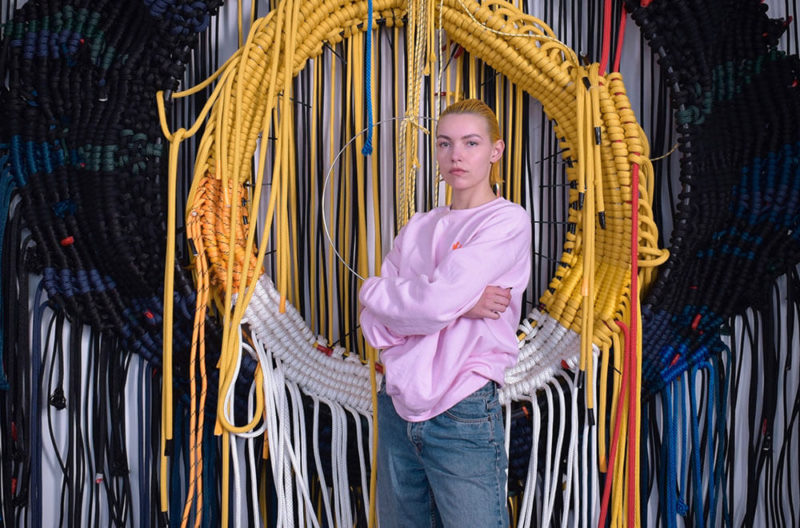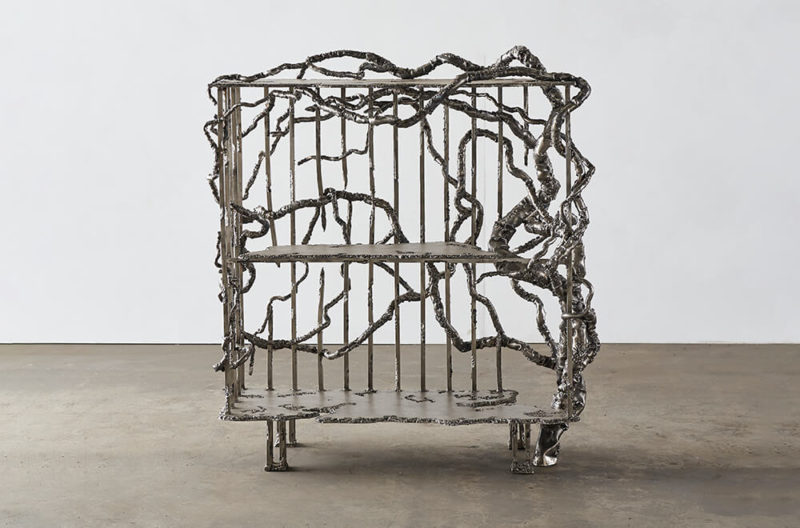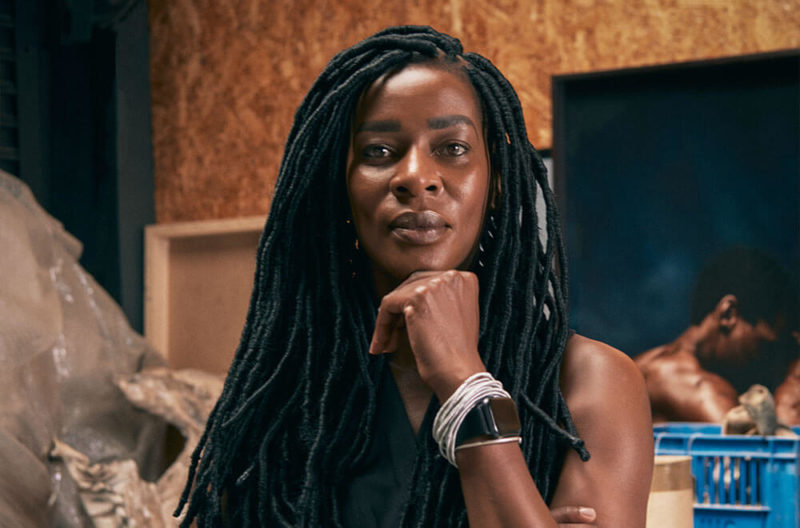Art Dubai fair / Cyrus Kabiru
Caroline Roux meets the Kenyan 'Afrofuturist' who started making spectacles from junk when he was six.
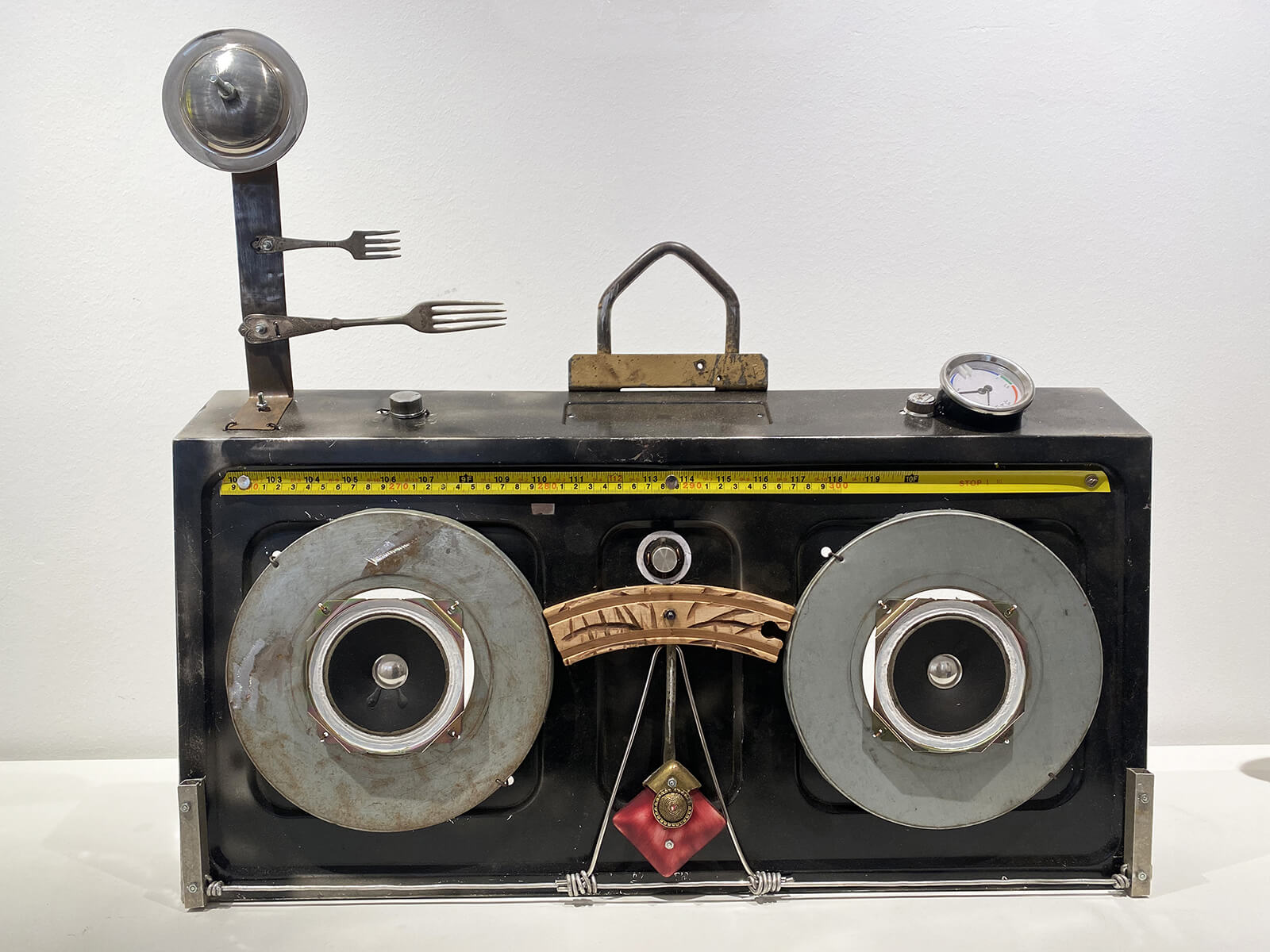
Cyrus Kabiru, ‘Jiko Nyeusi’, 2021
COURTESY: Cyrus Kabiru & AKKA Project
“MY GRANDFATHER WAS the only person in his village who had a radio,” says Cyrus Kabiru, talking of Kenyan life of several decades past. “Everyone would come to listen, mostly to the BBC, and then someone would translate the programme into Swahili. You could say they created their own version of the BBC.”
We are in Madinat Jumeirah in Dubai, where the Art Dubai fair is taking place in the main building, and Kabiru is here to run workshops with local children. They will take place in this pavilion on the Madinat campus, where some of his works – combining rubbish dump detritus into extraordinary sculptural pieces – are on display and proving as compelling to the fair’s art collectors as to the students. Among them is a deconstructed bicycle, its parts fanned out, with shoe shine tins, crushed bottle tops, metal files and aerosol spray cans providing decorative elaboration.
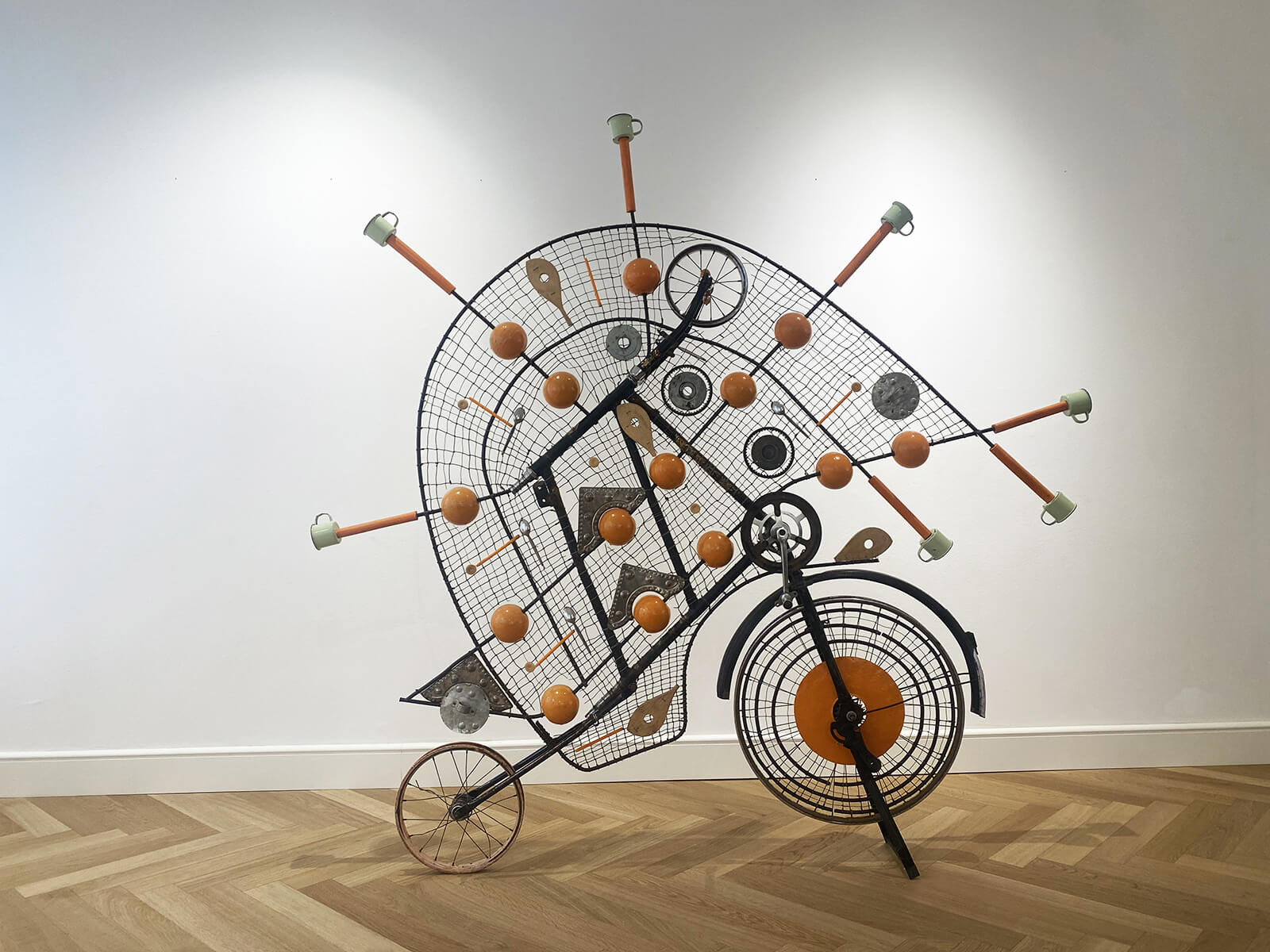
Cyrus Kabiru, ‘Join the dots’, 2020
COURTESY: Cyrus Kabiru & AKKA Project
On the booth of the Akka Project gallery in the fair itself is one of his radio pieces, aesthetically embellished with detritus including bottle tops, copper wire and other waste, which serves to recall the memory of his grandfather and mark the significant changes in the Kenyan way of life. “Kenya is one of the fastest moving countries in East Africa,” he explains, “where technology is available to nearly everyone these days. My grandfather owned the only radio; now he’s on Facebook on his phone.” Meanwhile, consumer culture means we throw more and more things away, giving Kabiru ever more scope for rescuing rubbish.
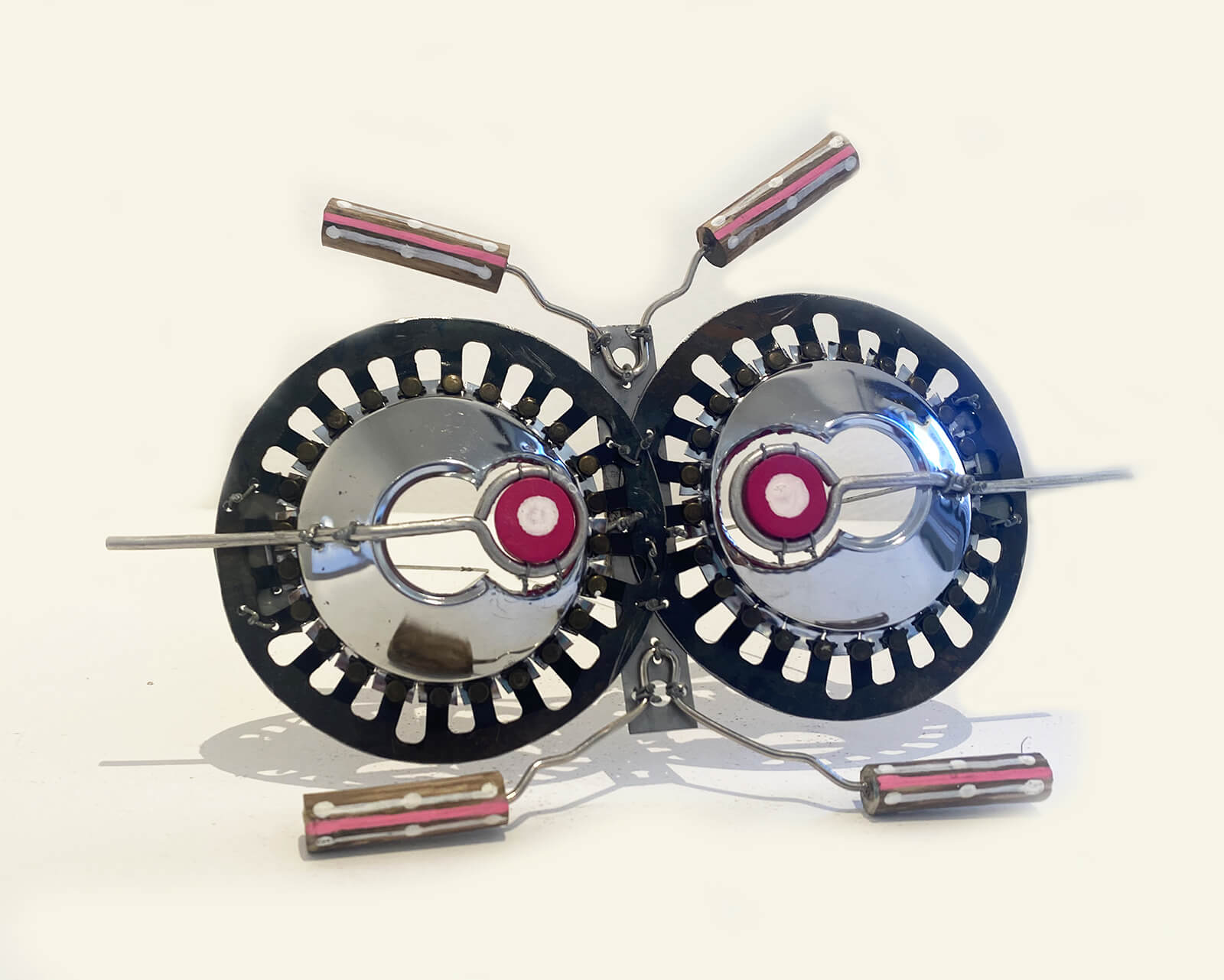
Cyrus Kabiru, ‘The bad bug’, 2020
COURTESY: Cyrus Kabiru & AKKA Project
Kabiru, who is 36, came to attention in the 2010s with the glasses he had been making since his school days – which he calls ‘C-Stunners’ – created by refashioning junk into extraordinary designs. The inspiration had come from growing up nearby the country’s largest tip – the Dandora dump – and from his father’s insistence that if he wanted a pair of glasses, he should make his own. “I started making them when I was 6 or 7,” says Kiburu. “By my teens I was swapping the glasses with schoolmates in exchange for them doing my homework. I was not a good example to society.”
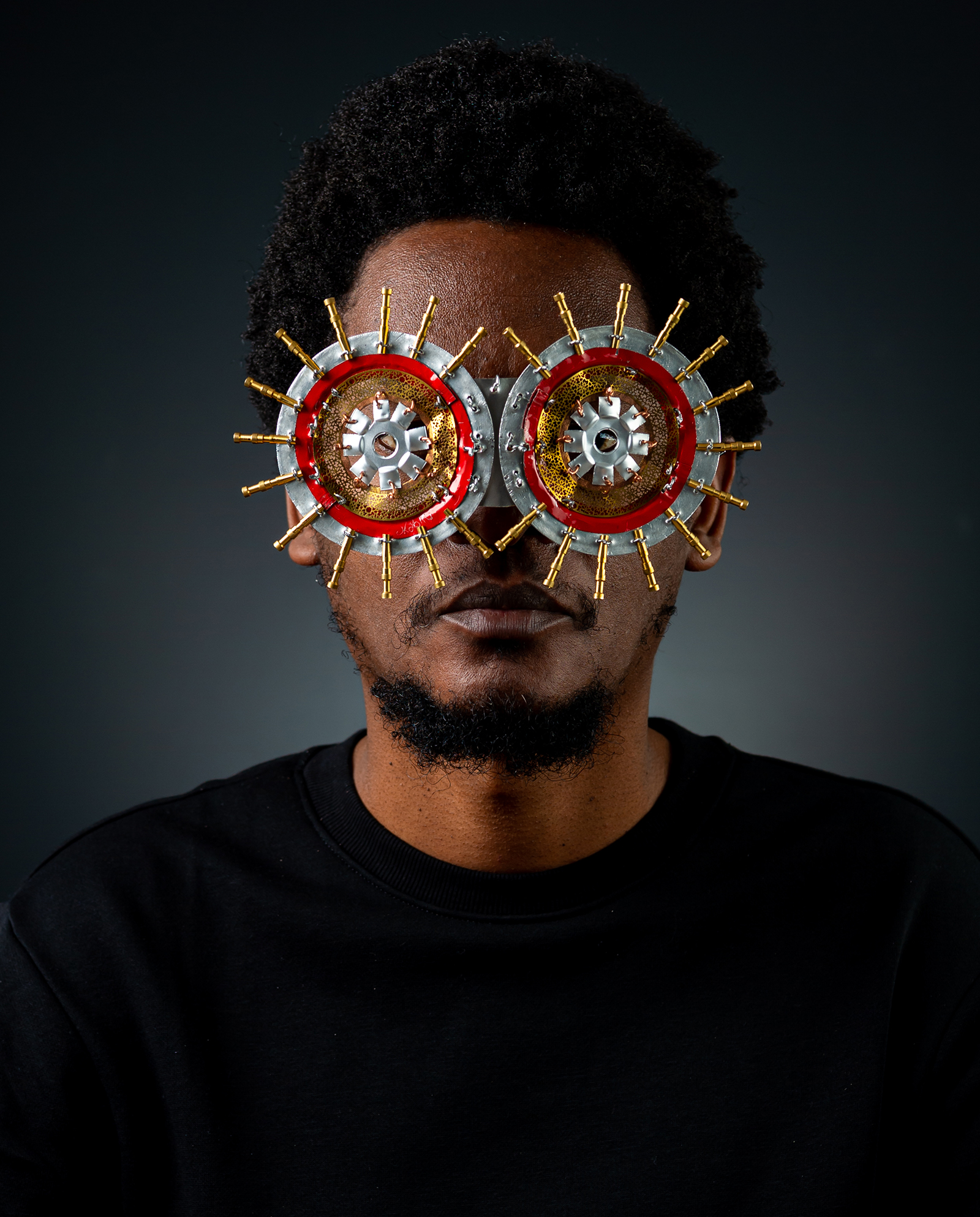
Cyrus Kabiru, ‘Wearing’, 2021
COURTESY: Cyrus Kabiru & AKKA Project
Extravagant and, indeed, stunning, the glasses can be made of combinations of any junk – aluminium cans, bicycle chains, nails and pieces of wood. Kabiru describes his mission as “giving trash a second chance”, and his style as ‘Afrofuturist’. The bicycles are known as the ‘Black Mamba’ series after the heavy-framed bikes, or Black Mambas, once found all over Kenya and now replaced, according to Kabiru, by Chinese motorbikes. “So now I’m giving bicycles a second chance,” he says.
Kabiru travels with a suitcase, which he fills with rubbish wherever he goes. “I’ll definitely take back copper wire and plastic from Dubai,” he says. His gallerists at Akka Project, Kristian and Lidja Khachatourian, recall taking him to a dump in Switzerland, “and he was like a kid in a toyshop,” says Lidja. “He couldn’t believe how clean it all was!” Earlier this year, they invited him to fulfil a two-month residency in Venice, and the results will go on show in their gallery there in September. “It was hard to find any rubbish in Venice,” he says. “So we went to thrift stores and markets.” One discovery, however, of an abandoned wooden pole used to tie up a gondola, has proved critical, and will form the basis of a large-scale totemic work.
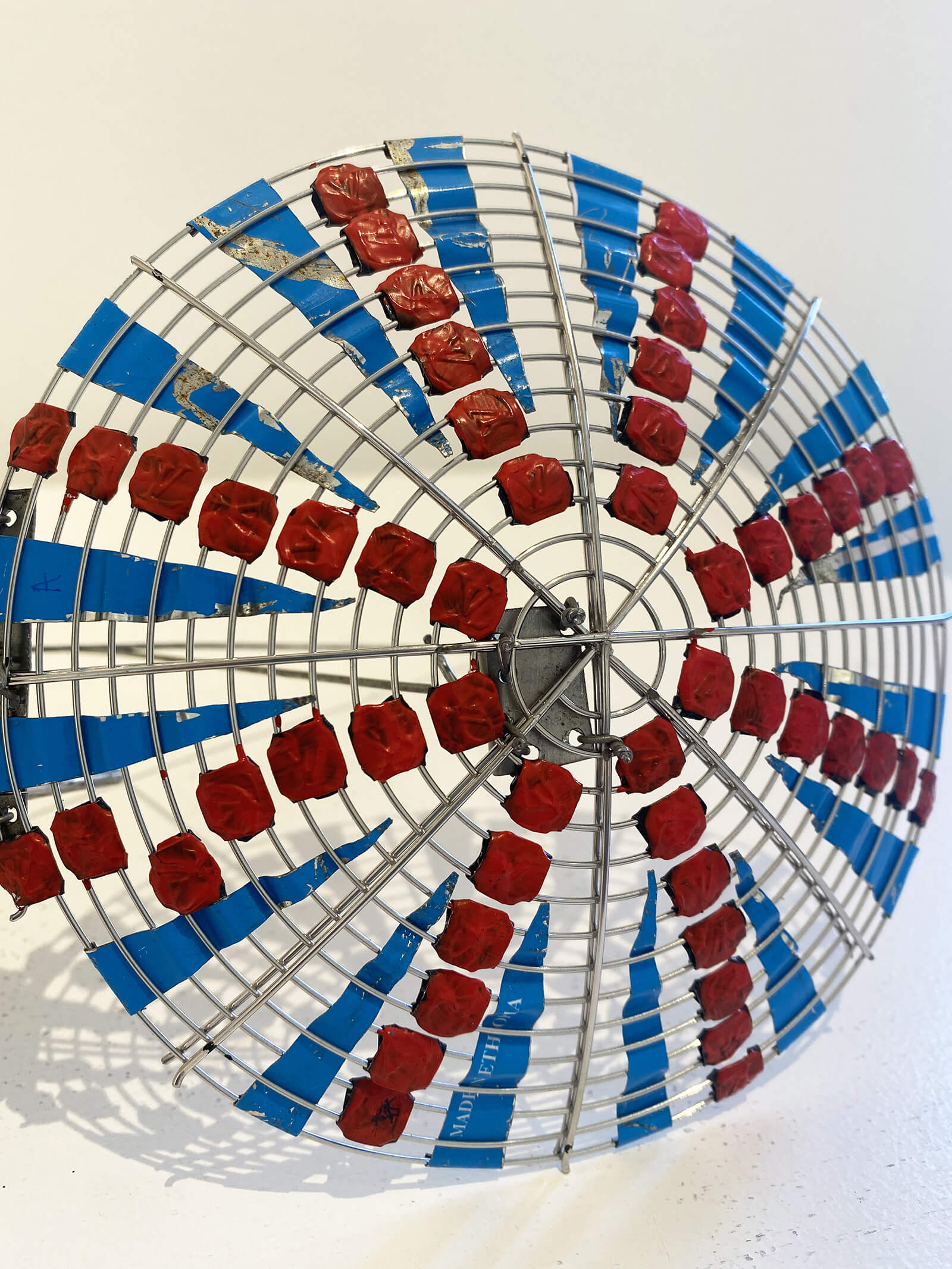
Cyrus Kabiru, ‘Miyale Ya Blue’, 2021
COURTESY: Cyrus Kabiru & AKKA Project
Back in Kenya, Kabiru has relocated to the Nairobi mountains, where he is building up a community studio for local people. “I want to share ideas with them, to bring them freedom of thinking,” he says. Meanwhile, in Dubai, he is about to run his workshops with local school kids. “You should see him teach,” says Kristian Khachatourian. “He really believes in the transformation of discarded items into wonderful works of art, and the way he communicates is so motivational, it’s astonishing to see.” Kabiru, it seems, doesn’t just bring magical changes to junk, but to hearts and minds.
AKKA Project has galleries in Dubai and Venice.

